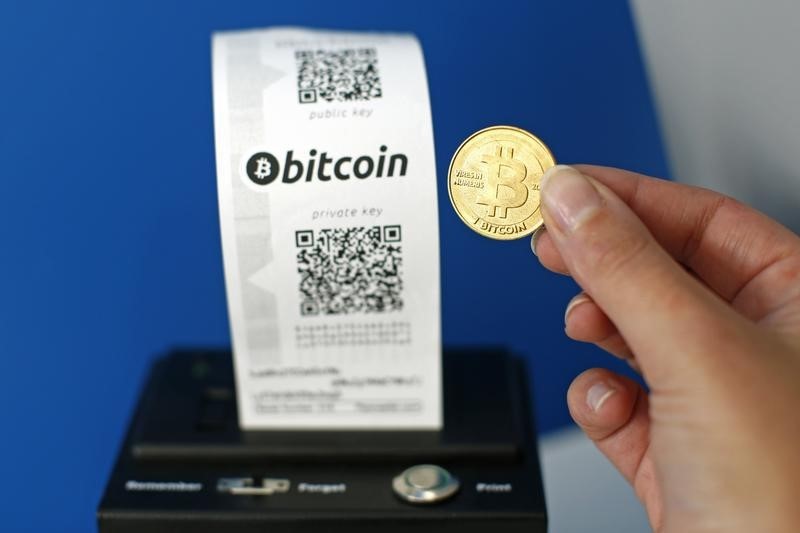Investing.com - Prices of web-based digital currency Bitcoin slumped on Wednesday, as reports that China’s central bank was calling in several of the country’s exchanges for closed door meetings.
Officials from the People’s Bank of China (PBOC) will meet Wednesday afternoon with representatives of bitcoin exchange platforms, according to people familiar with the matter cited by Bloomberg.
The report increased worries that the PBOC will heighten regulation of digital currencies and Bloomberg sources suggested that money laundering was one of the topics for discussion.
Bitcoin fell by 1.77% to $1,033.50 by 5:02AM (10:02GMT) on the New York-based itBit exchange, pulling back from an intraday low of $1,020.50 hit after the news hit the wires.
Other big exchanges such as Bitfinex, Kraken and BitStamp also showed the cryptocurrency falling by a similar amount.
According to the CoinDesk Bitcoin Price Index, which averages prices from the major exchanges, prices of the crypto-currency dropped 2.00%, to $1,031.53.
Elsewhere, yuan-denominated Bitcoin prices on Shanghai-based BTC China lost 1.84% to ¥7,275.00 (approximately $1,058).
Bitcoin prices jumped Tuesday to $1,070, their highest level since January 4, after China's forex reserves dropped below $3 trillion for the first time since February 2011.
Bitcoin is digital cash and is not backed by a government or central bank to regulate or issue it. It can be used to purchase goods and services from stores and online retailers.
However, Chinese authorities have reportedly begun considering heightened regulation of the bitcoin market as its citizens have become principal players in the digital currency as they hunt for alternative assets.
Bitcoin, the value of which more than doubled in 2016, was one of the best investments of the year and the best-performing currency, which experts often attribute to the fear of capital controls in China.
The PBOC warned investors on January 6 to take a rational approach to investment in the cryptocurrency that had shown “abnormal fluctuations”.
Coming after a 20% crash on January 5, the central bank cautioned against potential risks in platform operations and asked them to carry out "self-inspection" according to the law.
